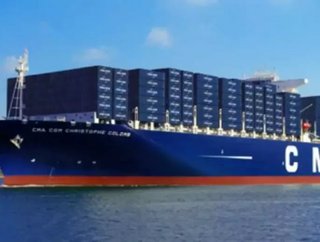Sea carriers have reduced carbon emissions

Data from the Clean Cargo Working Group has revealed that the average level of Carbon Dioxide emitted in the shipping industry has reduced by almost six percent, compared to 2010 levels.
The Group, which operate under Business for Social Responsibility (BSR) use data reported by 13 of the world’s leading ocean carriers, which represent more than 2000 individual ships. This equates to more than 60 percent of ocean container capacity worldwide.
Clean Cargo’s latest release – the third annual report – shows a fall of nearly six percent in emissions from reefer carriers. This drop in emissions has been attributed to improvements in fleet efficiency and data quality, along with changes in global trade conditions.
Clean Cargo are responsible for creating the industry standard for calculating CO² emissions by ocean containers. “We continuously work to improve the methodology,” explained Angie Farrag, Clean Cargo Project Manager for BSR’s Transport & Logistics Practice. “The priority now is to scale up shipper use of this data and support efforts to standardize emissions calculations across the entire logistics supply chain. This is critical in moving from measurement and reporting to real performance improvement over time.”
Clean Cargo works with ocean carriers, cargo owners, third-party logistics companies and other stakeholders to gather the most extensive report on environmental impact. The Group gathers vessel-by-vessel environmental performance data, primarily about the Carbon Footprint of carriers.
“Clean Cargo provides us with actual carbon-dioxide emissions from our carriers,” said Gorm Kjaerboll, Ocean Operations Manager at Electrolux and a Clean Cargo steering committee member. “As a shipper, we need good quality data to set and deliver on our own carbon footprint targets. We value our carriers’ efforts and welcome other shippers to join the dialogue and continue improvement of standards and performance.”






